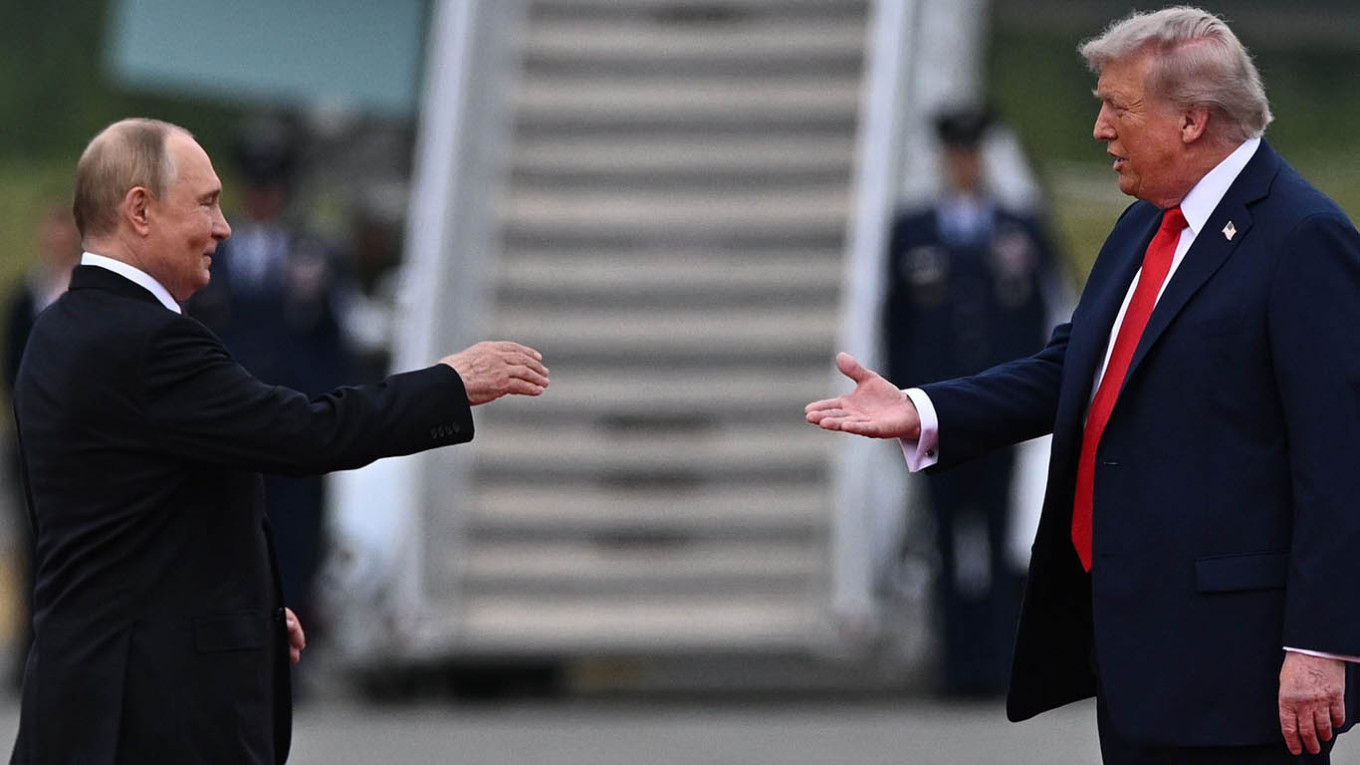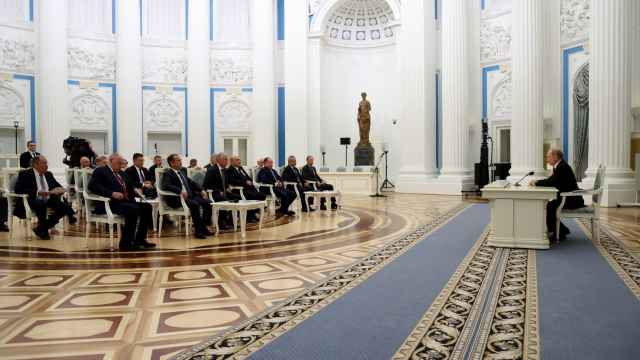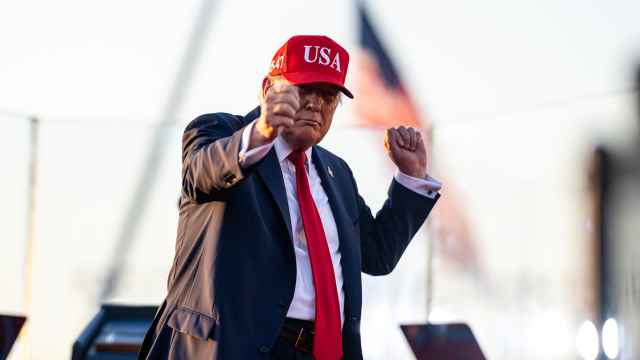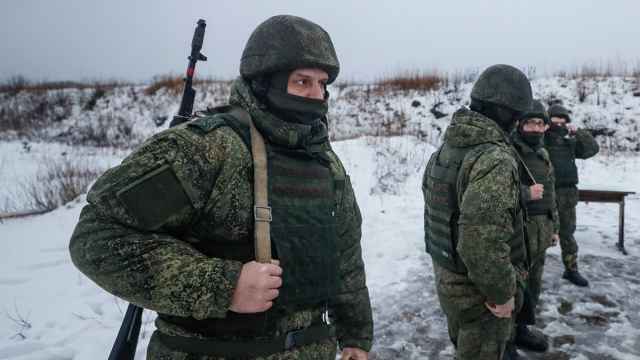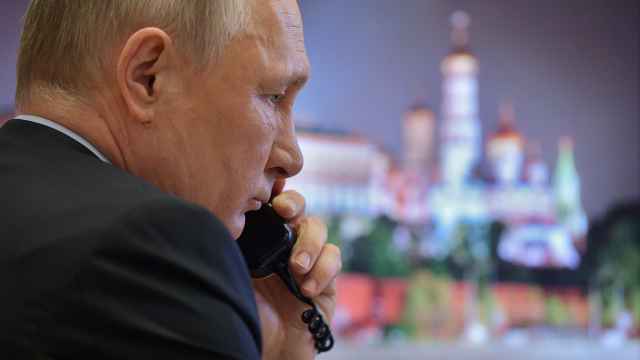Russian state television has blamed European countries and Western media for the stalled preparations for a planned summit between Presidents Vladimir Putin and Donald Trump aimed at ending the war in Ukraine.
Trump abruptly poured cold water on the Budapest summit on Tuesday, saying he did not want a "wasted" meeting. His move came after Russia reportedly refused to soften its hardline demands for ending its invasion in pre-summit calls with American officials.
State-run Channel One opened its Wednesday segment on the summit with a citation of Hungarian Foreign Minister Péter Szijjártó saying that “the European pro-war elite and its media are doing everything possible to prevent the Russia-U.S. summit from taking place.”
However, the investigative news outlet Agentstvo noted that in the channel’s coverage, Szijjártó’s reference to “the pro-war elite” was altered to add “European,” even though the Hungarian diplomat never used that word.
His original quote read: “The pro-war political elite and their media always behave this way before events that could prove decisive between war and peace.”
Commenting on Ukrainian President Volodymyr Zelensky’s planned visits to Brussels and London, where EU leaders are set to band together in support of Kyiv, the Rossia 1 TV channel claimed that the West wanted to “freeze” the war instead of negotiating a lasting peace.
“Western media report that Brussels and Kyiv are preparing to present their own peace plan — one that focuses not on addressing the root causes, but on freezing the conflict,” a Rossia 1 presenter said on air.
Moscow says the “root causes” of its full-scale invasion include Ukraine’s NATO and EU membership aspirations, NATO’s alleged violation of commitments not to expand eastwards and Kyiv’s alleged discrimination against Russian speakers.
Many of the Kremlin's demands, particularly for territorial concessions, are nonstarters for Kyiv.
Russian federal TV channel NTV also said that “foreign media were deliberately distorting information in order to disrupt the talks,” calling reports that the Budapest summit had been canceled “disinformation.”
Moscow has increasingly cast Kyiv’s allies in Europe as its main adversary and the biggest obstacle to peace since Trump’s inauguration in January.
Earlier this month, Putin said responsibility for ending the war primarily lies with Europe, which he accused of escalating the conflict.
Trump meanwhile has voiced growing frustration over Putin’s refusal to agree to a ceasefire in the nearly four-year-long war despite repeated rounds of shuttle diplomacy and the two leaders’ August summit in Alaska.
When asked about Trump’s latest comments on the Budapest talks, Kremlin spokesman Dmitry Peskov told reporters: "No one wants to waste time, neither President Trump nor President Putin."
“The pause that has emerged requires intervention at the highest level. But that intervention must be well prepared,” Peskov noted.
Russian Deputy Foreign Minister Sergei Ryabkov said Wednesday that “preparations for a summit are continuing," adding that preparations “can take various forms.”
Ryabkov also added that no arrangements had been made for a meeting between Russian Foreign Minister Sergei Lavrov and U.S. counterpart Marco Rubio in Budapest.
“There are no agreements on this. So I’m warning in advance those who will start writing about the cancellation of something again — don’t,” he said.
A Message from The Moscow Times:
Dear readers,
We are facing unprecedented challenges. Russia's Prosecutor General's Office has designated The Moscow Times as an "undesirable" organization, criminalizing our work and putting our staff at risk of prosecution. This follows our earlier unjust labeling as a "foreign agent."
These actions are direct attempts to silence independent journalism in Russia. The authorities claim our work "discredits the decisions of the Russian leadership." We see things differently: we strive to provide accurate, unbiased reporting on Russia.
We, the journalists of The Moscow Times, refuse to be silenced. But to continue our work, we need your help.
Your support, no matter how small, makes a world of difference. If you can, please support us monthly starting from just $2. It's quick to set up, and every contribution makes a significant impact.
By supporting The Moscow Times, you're defending open, independent journalism in the face of repression. Thank you for standing with us.
Remind me later.


